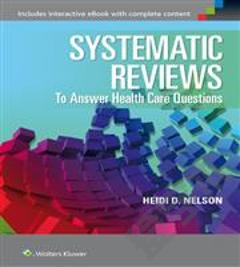Systematic Reviews in Health Care: A Practical Guide
What do we do if different studies appear to give different answers? When applying research to questions for individual patients or for health policy, one of the challenges is interpreting such apparently conflicting research. A systematic review is a method to systematically identify relevant research, appraise its quality, and synthesize the results. The last two decades have seen increasing interest and developments in methods for doing high quality systematic reviews. Part I of this book provides a clear introduction to the concepts of reviewing, and lucidly describes the difficulties and traps to avoid. A unique feature of the book is its description, in Part II, of the different methods needed for different types of health care questions: frequency of disease, prognosis, diagnosis, risk, and management. As well as illustrative examples, there are exercises for each of the sections. This is essential reading for those interested in synthesizing health care research.
{{comment.content}}








 京公网安备 11010802027623号
京公网安备 11010802027623号